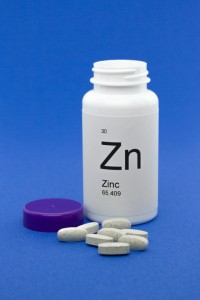 Oral zinc therapy initiated within 24 hours of common cold symptom onset, may reduce duration of the common cold in healthy people. The common cold is caused by human rhinoviruses that attach to the inside of the nasal passages. Zinc ion blocks this attachment. Thus, an antiviral effect is elicited.
Oral zinc therapy initiated within 24 hours of common cold symptom onset, may reduce duration of the common cold in healthy people. The common cold is caused by human rhinoviruses that attach to the inside of the nasal passages. Zinc ion blocks this attachment. Thus, an antiviral effect is elicited.
In one recent multi-country study, zinc was associated with shorter duration of cold symptoms but not severity. Zinc formulations included in the study were syrup and lozenges. Prophylactic zinc use in children resulted in reduced cold incidence; prophylactic use was not studied in adults. The study was unable to quantify a recommended dosage of zinc as release of the zinc ion varies across formulations (syrup and lozenges). Side effects were minimal, study participants reported bad taste and nausea with zinc lozenges use.
Dr. Anne Hermann, a holistic internal medicine physician, maintains offices in Tampa and Saint Petersburg Beach, Florida. Please contact the office at (813) 902-9559 for more information or to schedule an appointment.





 Main Menu
Main Menu